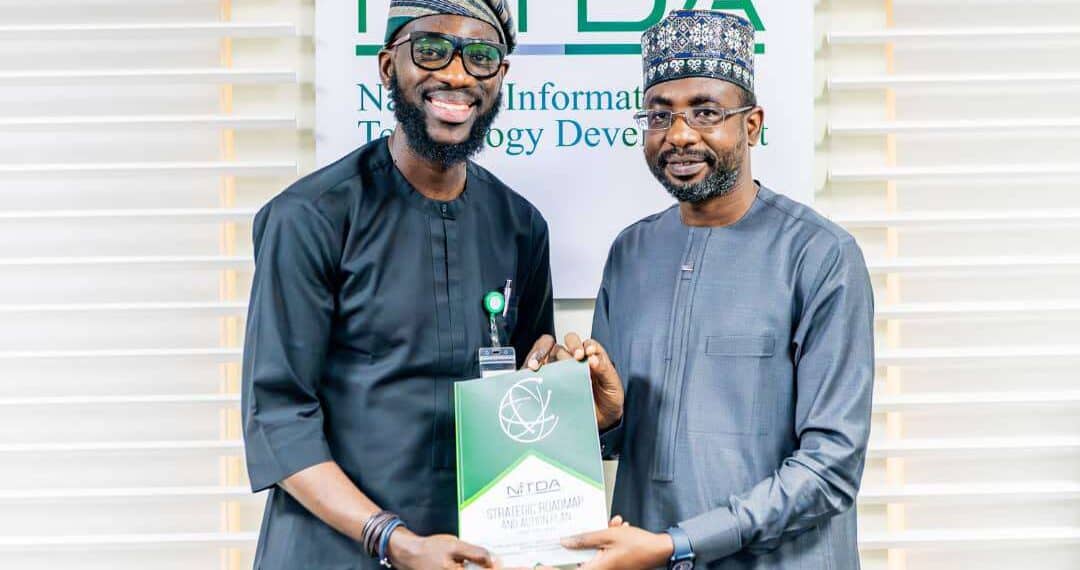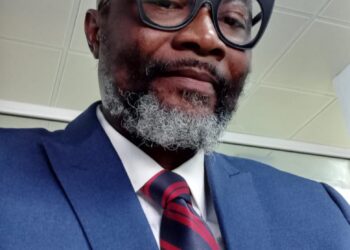The Google West Africa has presented its new Director for the continent, Mr. Olumide Balogun to the Director General, National Information Technology Development Agency (NITDA), Kashifu Inuwa CCIE.
This is as the tech giant promised to deepen the collaboration that exists between the two organisations.
Mr. Balogun who led other Google executives to the Agency’s Corporate Headquarters, Abuja, disclosed that the familiarisation visit to NITDA has become imperative because it would restate Google West Africa’s commitments to deepening the partnership.
He said, “I have been at Google for four years, recently now taking over the West Africa Director lead role. And our coming here today is to identify the critical steps that we need to take to jointly actualise the Nigerian President’s initiative to drive 1 million digital jobs because Google cannot thrive in isolation.”
Mr. Balogun revealed that Google have been working on Africa Internet for over eight years. According to him, “In 2015, during our premier developer event, we announced that Google has shifted from being a mobile first company to an AI first company. So, we were quite amused with all the chat GPT conversations.”
While disclosing that Google is currently working on a document that would detail the impact of Artificial Intelligence in Africa which will be launched in University of Johannesburg, South Africa in September, the Director is inviting the NITDA’s Director General, Kashifu Inuwa, to deliver keynote address at the event.
In his remarks, the NITDA boss maintained that he believes that they can create I million digital jobs if they work together to craft a strategy on how to achieve the target.
According to Inuwa, NITDA is positioning Nigeria for accelerated job creation in a digital economy. Saying, “We are looking at the Nigeria Startup Act, which identifies some initiatives such as the talent development that can enable job creation. Nigeria can position itself to bridge the gap because we have youthful population,” he said.
He noted that the government’s responsibility in the ecosystem is to intervene in terms of policies, regulations, and infrastructure where needed, the objectives of any regulation are to help create market, democratize access to services, protect consumers, enhance service delivery, and enable innovation.
“Basically, Regulation can be rule based and non-rule based. Non-rule based is what we advocated for. To allow the ecosystem players to self-regulate themselves, put the standard in place, and we can help to ensure new entrance comply to that standard because what we are after is to have a responsible and ethical views of platforms around the world,” he said.
Inuwa further disclosed that NITDA is changing people’s mindset about the perspective on government approach to regulation and policy, adding that the Agency is co-creating with the ecosystem in anything it does.
He maintained that Nigeria could position itself to bridge the gap in digital transformation because it has a youthful population. “In 2018, digitally transformed enterprise contributed 18.5% global GDP. It was projected to reach 53.3% this year, that is over 50% of the global GDP. The generative AI is going to add about 7 trillion US dollars,” he said.
While acknowledging that NITDA’s partnership with Google Developers Group has resulted in the training of 150,000 youths in Nigeria, Inuwa noted that, “Presently we have an initiative running here in Abuja at our National Center for Artificial Intelligence and Robotics (NCAIR), and we want to expand same programme to other states in collaboration with the GDG as well. We are looking at how we can build technology development zones in partnership with universities to promote smart manufacturing.”
“Similarly, we are also looking at how to establish the seed investment fund to all the startups to attract investment. Last year, over 626 billion was invested but only 3.5% came to Africa and if you look at our population, we can do more than that; these are some of the ideas we need the stakeholders like you to come work with us on,” he concluded.












